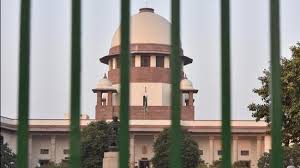Customs Act, 1962, Section 71, 72, 111, 112, 28AB – Customs Tariff Act, 1975, Chapter Heading No.98.01 of the Schedule – Customs – Penalty – Import of second hand steel mill machinery and parts covered by three transit bonds totalling 595 cases– Import duty – Penalty – Interest – Challenge as to –Not the case of the respondent that the 304 cases found inside the notified warehouse were kept there beyond the warehousing period – Allegation of the respondent is that 264 cases were improperly or unauthorisedly removed from the notified warehouse as those were found lying outside the notified are abut within the industrial/factory premises of the appellant – That apart, 27 cases were neither found inside the notified warehouse nor outside the said warehouse but within the factory premises of the appellant – Held that the provisions of Sections 71 and72 would not be applicable – Decision of the respondent to invoke Section 71 and thereafter levy interest on the goods covered by the 264 cases under Section 28AB of the Customs Act was not justified – Inference drawn by the respondent that the permission granted by the Superintendent was only temporary and therefore, the rigor of Section 71 would be attracted would not be a correct understanding of the situation and the law – There is no explanation on the part of the appellant qua the missing 27 cases – Therefore, the view taken by the respondent and affirmed by the CESTAT that those 27 cases were improperly or unauthorisedly removed from the notified public bonded warehouse held to be correct and requires no interference – Reverting back to the 264 cases, in a case of this nature, Section 15(1)(b) would have no-application – Rather, Section 15(1)(c) would be attracted – Demand raised by the respondent against the appellant and affirmed by the CESTAT qua the 264cases including levy of customs duty and interest cannot be sustained hence liable to be set aside and quashed – Parties are directed to work out their remedies in respect of the 264cases of goods under Section 15(1)(c) of the Customs Act – Demand of customs duty and interest on the27 cases sustained – The decision imposing penalty of rupees one lakh on the appellant under Section 112 of the Customs Act is also not disturbed in view of the conduct of the appellant in unauthorisedly removing the 27 cases of imported goods not only from the notified public bonded warehouse but also from the industrial/factory premises of the appellant. (Para 52 to 55 and 58)
SUPREME COURT OF INDIA
2024 STPL(Web) 184 SC
[2024 INSC 231]
M/S. Bisco Limited Vs. Commissioner Of Customs And Central Excise
Civil Appeal No. 4663 of 2009-Decided on 20-03-2024
https://stpllaw.in/wp-content/uploads/2024/04/2024-STPLWeb-184-SC.pdf







